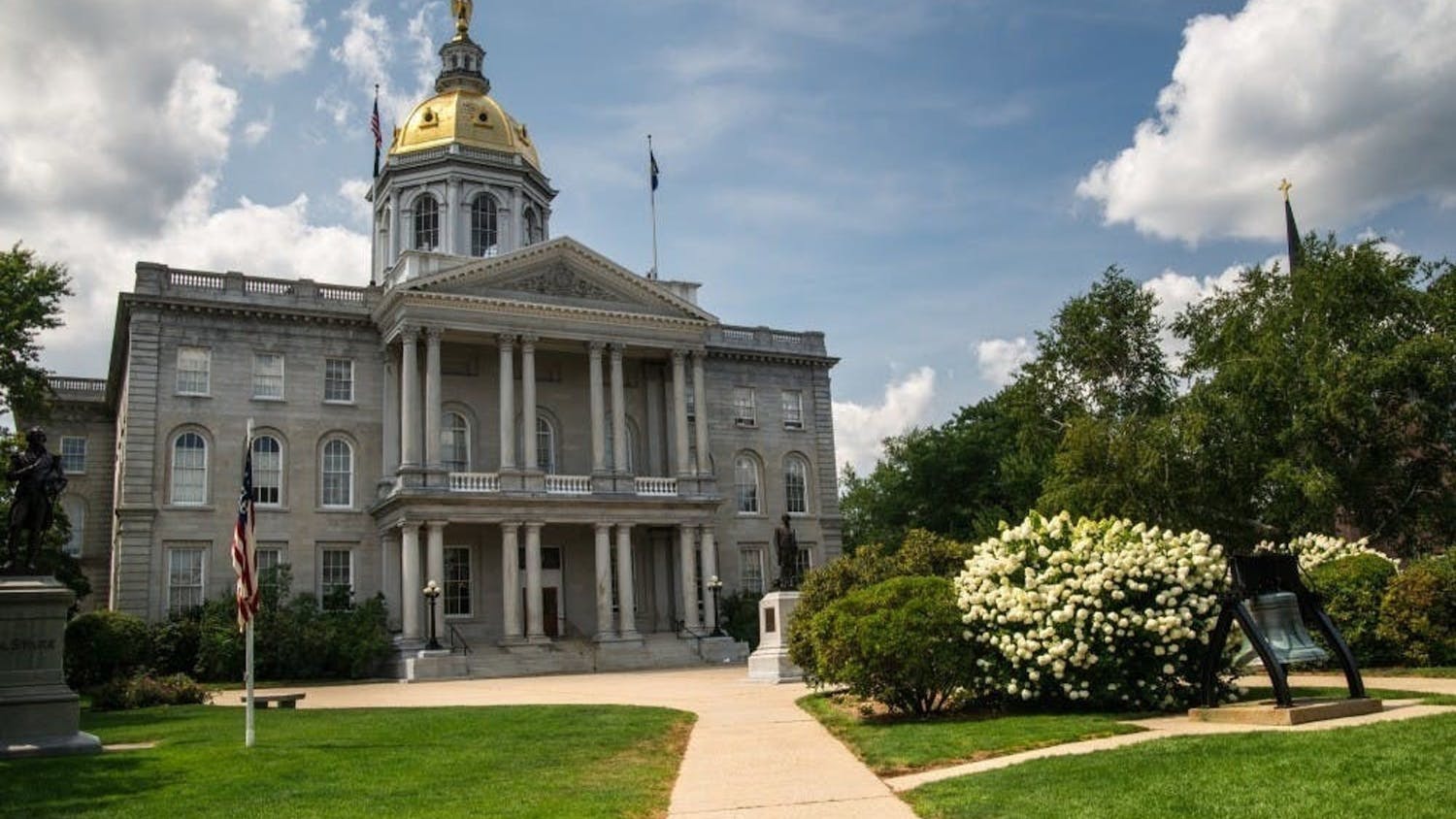Professors and graduate students gathered in the Rockefeller Center yesterday for a “town hall” style meeting to hear dean of graduate studies Jon Kull announce a plan for a new, administratively independent School of Graduate and Advanced Studies at the College that would report directly to Provost Carolyn Dever. The new graduate school would centralize the administration of graduate programs to make communication and coordination easier, encourage the creation of interdisciplinary programs and help with graduate student and faculty recruitment, he said.
Presently, the office of graduate studies — which supports the 770 students enrolled in masters and doctorate degree programs, not including those in professional schools — is part of the college of arts and sciences, despite the fact that Dartmouth’s graduate programs span different schools, Kull said. The office of graduate studies, for example, administers graduate programs in engineering, quantitative biomedical systems and the program in experimental and molecular medicine, shortened to PEMM, while the Thayer School of Engineering and Geisel School of Medicine fund all of those programs, Kull said. Right now, if the office of graduate studies wants to fund PEMM, they would need approval from several deans first.
“It’s just a lot of bureaucracy when budgeting and when running an office as large as graduate studies,” president of the graduate student council Erin Brioso MALS ’16 said.
The change would not affect the professional degree programs at Thayer, Geisel and the Tuck School of Business, biochemistry professor Dean Madden, a member of the Task Force that recommended the creation of the graduate school, said. It also would not change the number of graduate students at the College.
Under the new plan, the priorities of graduate programs would be easier to coordinate, Kull said.
“The dean of the graduate school would be able to advocate directly for that school and to allocate resources accordingly,” Kull said.
At one point, eight deans needed over eight months to resolve a cost overrun in a graduate program, Madden said.
Another goal of the School of Graduate and Advanced Studies plan is to provide a centralized administration of graduate programs that can ensure graduate students’ experiences includes training outside of research.
“We want to leverage the historical strength of Dartmouth as a liberal arts institution and give [graduate students] broad skills,” Kull said, adding that these skills include strong writing and communication. Other resources he hopes to provide are generally applicable courses, such as an already existing communication science course and teaching assistant training programs.
The new school would also coordinate applications for fellowships, Kull said. Postdoctoral fellows, including those in the recently created Dartmouth Society of Fellows, would also be included in the graduate school.
The new structure of the School of Graduate and Advanced Studies would also help to create interdisciplinary programs, Kull said.
“It should much more nimbly manage hosting new programs that span departments,” Kull said.
Interdisciplinary graduate programs — such as digital musics and ecology, evolution, ecosystems and society, or EEES — that do not currently have home departments would find a home in the graduate school.
“There are a lot of graduate programs that are unique to Dartmouth, and you want to make sure those can be preserved,” Madden said. “Digital Musics and EEES identified niches that were nationally vacant.”
Another aim of creating a graduate school is to bring greater visibility to graduate programs at the College to recruit better graduate students and faculty. When faculty leave the College, they are generally going to places with larger graduate programs, Kull said.
“My anecdotal impression is that research support, of which graduate programs are a part, is a big concern for faculty when we’re trying to recruit them,” Kull said. “It’s a big symbolic move to say to someone we’re recruiting, ‘Yes, Dartmouth is so supportive of research that it’s creating an independent school and putting resources in to support graduate programs.’”
Undergraduates would benefit from the graduate school’s faculty and students as well. Any improvements in graduate programs would benefit undergraduate researchers working alongside graduate students, Kull said.
“We are ensuring the strongest faculty at Dartmouth, and we’re ensuring undergraduates are taught by the best faculty at Dartmouth,” Kull said.
Greater visibility would also hopefully attract donations, Kull said.
“There’s been no effort to develop donors for graduate programs. Compared to our peers, we’re way behind there,” Kull said.
The discussion after the announcement also touched on methods to bring the College’s graduate programs in line with other peer institutions.
“Without graduate programs, we would no longer be in the Ivy League. Administrative support for graduate programs at Dartmouth is 1 percent of the operating budget, so increasing it a bit to retain our status as an Ivy League institution is a good investment,” Kull said.
Brioso generally praised the meeting as informative, but noted the sparse student turnout.
“It would have been a lot more beneficial if more graduate students were in the audience,” Brioso said.
Approximately 20 people were in attendance, the majority of whom were professors.
The process of creating an independent graduate school first began in 2012 when one working group recommended the creation of a graduate school and another recommended the creation of a school of advanced studies. College President Phil Hanlon voiced his support for an independent graduate school in 2013. A task force, created in 2014 by Dever, recommended the formation of a school of both graduate and advanced studies when it reported its findings in July 2015.
The task force had a two-part mission, Madden said — to bring ideas together from working groups and run ideas by the community.
“It was not just something that walled itself off and designed a graduate school,” Madden said.
The proposal for the School of Graduate and Advanced Studies will be presented in a general faculty meeting on Nov. 16, which would include a vote on whether to recommend the creation of the new school to the Board of Trustees.



